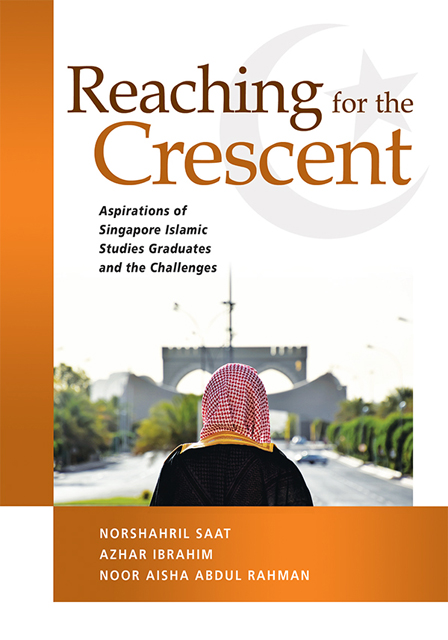Book contents
- Frontmatter
- Contents
- Preface
- Abbreviations and Acronyms
- A Note on Translation, Spelling and Other Conventions
- 1 Introduction
- 2 Overview of Islamic Studies and Mode of Thinking
- 3 Singapore Islamic Studies Graduates: Learning Experience and Struggles
- 4 Current Islamic Studies Undergraduates: Navigating Uncharted Pathways
- 5 Challenges, Genesis and Prospects for Development
- 6 Religious Education, Dominant Religious Orientations and Their Impact
- 7 Conclusion
- 8 Bibliography
- Index
- About the Authors
4 - Current Islamic Studies Undergraduates: Navigating Uncharted Pathways
Published online by Cambridge University Press: 01 September 2023
- Frontmatter
- Contents
- Preface
- Abbreviations and Acronyms
- A Note on Translation, Spelling and Other Conventions
- 1 Introduction
- 2 Overview of Islamic Studies and Mode of Thinking
- 3 Singapore Islamic Studies Graduates: Learning Experience and Struggles
- 4 Current Islamic Studies Undergraduates: Navigating Uncharted Pathways
- 5 Challenges, Genesis and Prospects for Development
- 6 Religious Education, Dominant Religious Orientations and Their Impact
- 7 Conclusion
- 8 Bibliography
- Index
- About the Authors
Summary
Based on responses from survey questionnaires and in-depth interviews with graduates as far back as the 1960s, the previous chapter highlighted major factors conditioning their pursuance of Islamic studies in selected educational institutions abroad, the types of religious education received, their learning experiences as well as the major challenges they encountered upon their return. This chapter seeks to examine the extent to which these findings remain relevant to current religious studies undergraduates. Data was drawn from survey responses and focus group discussions with students from a diversity of religious institutions in neighbouring countries (Malaysia in particular) and the Middle East conducted between August 2017 and January 2020. Attention was given to their (a) motivations for pursuing religious studies in their universities of choice, (b) the modes of teaching and learning religion, (c) their interaction and relations with students and lecturers within and beyond the campuses, (d) the extent of support they received from relevant stakeholders in their educational journey and the challenges they are facing, and (e) their concerns regarding their future employment prospects. Generally, responses reveal that the Islamic studies landscape and its impact have generally remained unchanged over the decades.
Since 2000, amid growing concerns with the rise of religious radicalism in the Muslim world and the region, Islamic studies graduates as well as those currently studying abroad have been the focus of much national and community attention. Reports in the media consistently highlight efforts by Malay/Muslim politicians engaging current Islamic studies undergraduates and impressing upon them the imperative of contextualizing knowledge to the context of Singapore’s diverse and pluralistic society. Contextualizing Islamic knowledge underscores one of the main objectives of the PCICS (Postgraduate Certificate in Islam in Contemporary Societies). Introduced in April 2020 and mandated on all returning Islamic studies graduates who seek to teach religion in the country, the certification programme for fresh Islamic studies graduates is “designed to equip students with deep familiarity with the current and future contexts of Singapore society, Islam and Muslim communities in the Southeast Asian/ Nusantara region”. A committee to gather feedback and make recommendations to professionalize asatizah generally referred to as COFA (Committee of Future Asatizah) was also been formed under the leadership of Senior Minister of State Dr Mohamad Maliki Osman.
- Type
- Chapter
- Information
- Reaching for the CrescentAspirations of Singapore Islamic Studies Graduates and the Challenges, pp. 81 - 109Publisher: ISEAS–Yusof Ishak InstituteFirst published in: 2023



